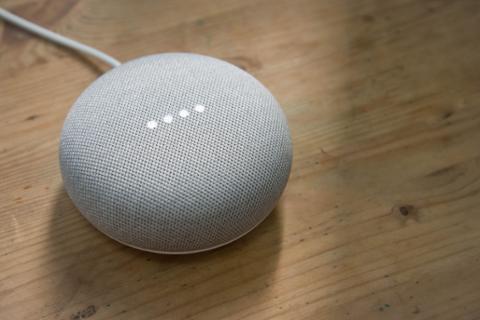Amazon's Alexa and Google Assistant Move to Dominate CES
At this year’s Consumer Electronics Show (CES) in Las Vegas, the emphasis is on artificial intelligence (A.I.) and machine learning. Any number of vendors will spend this week showing off products that integrate a voice-activated digital assistant such as Amazon’s Alexa or Google Assistant. Google has been doing its best to transform CES into a billboard for its A.I. efforts. For example, the Vegas monorail—which swoops behind the city’s main strip, carrying passengers to the casinos—features an enormous “HEY GOOGLE” on its side, a nod to the spoken command that activates Google Assistant. The company has also set up a huge outdoor booth. Not to be outdone, Amazon has a CES booth dedicated to Alexa, and will host several presentations describing the platform’s capabilities. (In keeping with the show’s “fun” focus, there will even be a “Amazon’s Treasure Truck,” which will offer prizes and swag.) The e-commerce behemoth is using the show to highlight its partnerships with PC makers such as Hewlett-Packard, Asus, and Acer, which are all integrating Alexa into laptops and desktops (that’s spectacularly bad news for Microsoft, which hoped that its own digital assistant, Cortana, would dominate on PCs). The influence of CES on the overall tech industry is often overstated. Over the years, many products have made a spectacular debut at the show, only to meet with lackluster consumer adoption—if they ever appear at all. Even in those instances where a product with mass exposure at CES managed to succeed in the broader marketplace, there was no guarantee of longer-term viability; netbooks, for example, were all the rage at CES 2010, only to soon implode as a market with the advent of tablets. That’s something to keep in mind as manufacturers gear up all sorts of “smart” products: we’ve seen this kind of hype before, and it often doesn’t end happily for the companies that embrace it. But that doesn’t mean this current movement will fail, especially since a.) the near-entirety of the tech community seems onboard, and b.) hardware powered by Alex and Google Assistant already have an enviable track record of sales. Any tech pros interested in A.I. and the Internet of Things (IoT) should pay attention to the current ecosystem consolidation around Google Assistant and Alexa—and keep an eye on Apple’s Siri, which remains a contender in the “smart home” space thanks to integration with HomeKit. Whether or not such devices become ubiquitous in homes and businesses, it’s clear that the tech industry sees this direction as the future.


